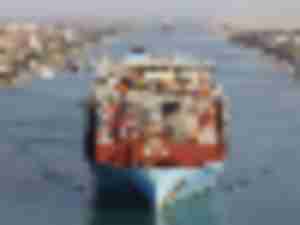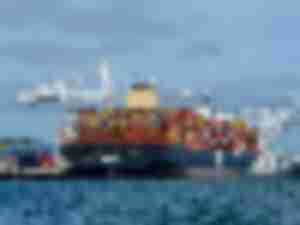Maersk will build eight 16,000 TEU ships powered by methanol
A.P. Moller-Maersk announced on December 8th that it will be building eight 16,000 twenty-foot unit (teu) container ships powered by “carbon-neutral methanol” with an alternative capability for low sulphur diesel fuel
FDA: U.S. food exporters to China must file “facility registration requirements” before January 1, 2022
The new Chinese Customs requirements go into effect on January 1st, 2022 and the FDA is asking food exporters to China to submit information to the FDA by December 17th, 2021 to meet the Chinese deadline.
Port of Oakland’s Wan & Brandes see recovery in sailings
After experiencing a decline in ocean carrier sailings over the last several months, the Port of Oakland is starting to see an uptick in sailings and volumes, according to Port of Oakland executive director Danny Wan.
How to tune your port IT for maximum productivity
Running a port is like conducting an orchestra. When everything runs in harmony, it’s like a symphony on the deck. And the conductor behind this masterpiece? Well, it’s your IT system. Find out how you can tune the different elements to boost port productivity.
New APM Terminals in Plaquemines shows importance of Gulf Ports and Marine Highway
Sandy Sanders, executive director, Plaquemines Port Harbor & Terminal District (PPHTD), says the Port’s planned APM Terminal will demonstrate the importance of Gulf Coast ports as means of reducing port congestion while the Port’s support of a new Marine Highway service will demonstrate the advantage of moving large numbers of containerized imports and exports off congested highways and on to waterborne transport.
Using Tech as a Competitive Edge to Combat the Driver Shortage
It’s harder and harder to find drivers today. With increased regulations and volatile markets, what used to be a profession of wanderlust and freedom of the road is struggling to attract top driving talent.
C.H. Robinson: Millions at stake for shippers awaiting decision on China tariff refunds
The potential reinstatement of Section 301 tariff product exclusions could give businesses the change to save costs moving forward or even take advantage of retroactive refunds.
More floods in British Columbia worsen Port of Vancouver’s supply chain issues
After torrential rains called the ‘storm of the century’ hammered British Columbia’s southern interior in mid-November, submerging many communities and critical rail and road links with Canada’s largest port, the supply chain crisis appears to be getting from bad to worse, with the third rainstorm that began Wednesday.
Railroads converting to batteries could save $94 billion in two decades
Berkeley National Lab says, U.S. Class 1 railroads converting to batteries could save $94 billion over 20 years and reduce pollution.
Building the future of freight forwarding
Freight forwarders are the unsung heroes of global trade. Whenever there’s a new supply chain shock, they are the companies we rely on to react fastest, to problem-solve strategies for the world’s foremost brands and manufacturers and, ultimately, to maintain the flow of goods.
© Copyright 1999–2025 American Journal of Transportation. All Rights Reserved










